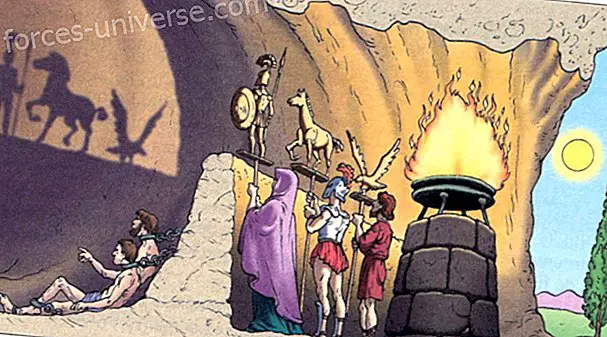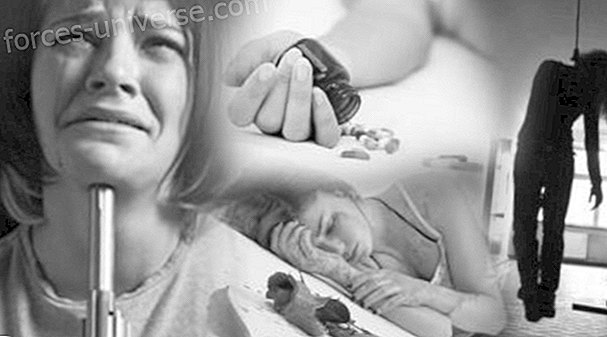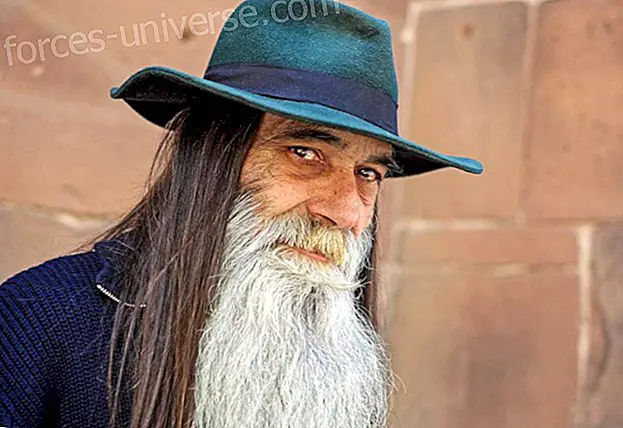 |
Most existential humanist psychologists today believe that a universal aspect of human nature is the impulse to grow, empower and fulfill and to be all that one is capable of to become. If we consider this point of view exactly, then it is obviously necessary to explain why most people do not develop to their maximum internal potential. As we affirm ourselves in our psychoanalytic knowledge and transcend Freud, we inevitably come to the discovery of what I have called "the healthy unconscious." To put it simply, we not only repress our dangerous, unpleasant or threatening impulses, but we often repress our best and most noble impulses.
Unfortunately, it is omnipresent in our society. Frequently, the most intelligent person is ambivalent about his intelligence. Sometimes, you can even deny it entirely in an effort to look like an ordinary or average person, for fleeing your destiny. Defenses against paranoia - or perhaps, more precisely, against pride or sinful pride - are present in our internal conflicts. On the one hand, the person has a normal tendency to open and cheerful self-expression, to the realization of their best tendencies. However, it is frequently found in situations in which it must camouflage these same capabilities.
An affirmation of one's superiority - even if it is even justified, realistic and proven - is often lived by others as an affirmation of the domain of the speaker and the concomitant demand for subordination by the listener. It is therefore not surprising that the listener rejects this statement and becomes aggressive. Consequently, the superior individual removes merits from himself to avoid counterattacking others.
However, the problem is also presented to all of us. All of us must feel strong enough or have enough love for ourselves to be creative, to achieve our goals, to realize our potentials. Consequently, anyone is drawn into a conflict between their normal intra psychic tendency to develop in all their fullness and the socially acquired awareness that others are willing to consider their true stature as a threat to their own self-esteem.
It could be said that the person we call neurotic is so impressed with the possibility of punishment - she is so afraid of the hostility that may arise - that, in effect, she abandons higher capacities, her right to develop to full potential. To avoid punishment, he becomes humble, smooth, ingratiating or even masochistic. In short, due to the fear of punishment for being superior, it becomes inferior and throws away part of its capabilities: that is, it voluntarily diminishes its possibilities of humanity. For the sake of security and the sense of security, he mutilates and atrophies himself.
However, it is impossible to completely deny our deepest nature. If it is not shown in a direct, spontaneous, uninhibited and loose way, it must inevitably express itself in a hidden, covert, ambiguous and even furtive way. And at least, the lost abilities themselves will be expressed in disturbing dreams, in disturbing free associations, strange verbal slips or unexplained emotions. For that person, life becomes a continuous struggle, a conflict. If the neurotic person has resigned with determination to develop their potentials and self-realization, it typically seems "good", humble, modest, obedient, reserved, shy and even withdrawn.
This model will help us understand the neurotic person in another way. Mainly as someone who simultaneously deploys in search of his birthright to full humanity, wanting to develop towards self-realization and the fullness of being, but who, limited by fear, disguises or conceals his normal impulses and contaminates them with a mixture of guilt, with which he relieves his fear and appeases others. It could be said in this case that “growth itself is evaded”, that is, the task in which its peculiar idiosyncratic constitution fits, the task for which it was born is being avoided. He is evading his destiny.
Therefore, the historian Frank Manuel has called this phenomenon The Jonah Complex. Remember that in Jonah's biblical account, he was called by God to exercise the gift of prophecy, but he was afraid of his task. He tried to run away from her, but he fled wherever he fled, he couldn't hide anywhere. He finally understood that he had to accept his destiny, he had to do what he was called to do. In that sense, each of us is called to a particular task that fits our nature. Fleeing from it, fearing it, adopting a half or ambivalent attitude are all "neurotic" reactions in the classical sense of the word.
However, from another perspective, it is possible to see these mechanisms as examples of our impulse towards health, self-realization and full humanity. The difference between the diminished person who yearns with melancholy for full humanity, but who never dares to do it, in front of the liberated person who develops towards his destiny is simply the difference between fear and courage.
It can be said that neurosis is the process of self-realization under the empire of fear and anxiety. Therefore, it can be considered that it is the same universal and healthy process, but hindered, blocked and chained. These neurotic people can undoubtedly be considered as people who move towards self-realization, despite limping instead of running and zigzagging instead of advancing directly. ”
Description: looking at mountains
This issue came up with a patient, about her fear of "shining." From a spiritual point of view, I find that what Maslow calls "a defense against pride or sinful pride" is connected with episodes of having climbed into the Ego (in this life or in others) and believing ourselves superior, better, different from the rest, and have benefited from it. We fear to repeat it again. Another way to lower ourselves is to think that we are very little, that we do not deserve a “destiny of greatness”, that we lack much. Paradoxically, the two extremes touch and inhibit us from connecting with the learning of Being and our current possibilities.
Also, I have noticed an undefined, irrational and ancestral fear of being locked up, burned, branded as crazy, etc., which has its origin in previous incarnations, in which being different or spiritual was punished. We must understand that we are in other times, in which our characteristics are stimulated and sought, in which the New Energy sustains and guides us.
Source: http://senderosalalma.wordpress.com/2014/01/17/el-complejo-de-jonas-el-miedo-a-nuestra-propriate-grandezapor-abraham-maslow/
The Jonah Complex (Fear of our own greatness), by Abraham Maslow






